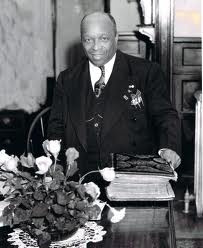I graduated from Brooklyn College in 1960 and immediately lost my part-time job at Café Figaro. As mentioned before, Tom told me he didn’t want college grads working for him, but I think that was just an excuse. I believe his real reason was that I was spending too much time talking to the customers, which from his perspective was probably true. However, many of the “customers” had become good friends over the years, and how could I not talk to them? In any case, I had to find full-time work.
For a short time I worked for Bunge Corp, a commodity import-export firm, as a clerk-typist. I didn’t know how to type (although I was the only boy at my high school to have taken a typing course. Boys simply didn’t do that sort of thing, and were forbidden those courses), but that requirement had been circumvented by having a friend take the typing test for me. Once at Bunge, they loved me because I revised and improved the code in which commodity prices were received and transmitted each day. However, the salary was low, and the job held no future, so I moved to another job without a future but one with better pay and a semblance of professionalism.
I began working for New York City’s Welfare Department as a “social investigator” in Harlem. The work involved making periodic visits to usually single mothers and ascertaining that they had no other means of support than the City, and most importantly that the “putative father,” (except when the fathers were not putative) of their child or children were really absent. If an employed male was present in the family, financial aid from the City was cut off, providing a fair incentive for lying about such things. After a round of such visits all over a very crowded Harlem, I and my colleagues returned to the office, the last building on Park Avenue, to dictate our reports over the phone to our typing pool, all of whose typists were legally blind, located somewhere in the basement. A bit of relief was lunch at Father Divine’s
Church on East.134th Street. Father Divine (who really deserves a few more words than I have space for here) during the Great Depression had organized delicious and nutritious meals at minimal prices in restaurants all over New York. In the 1960’s, his church on East 134th Street was still in operation, and the meals served in its basement were famous throughout Harlem. It would have been stupid not to eat there.
However, the work was thoroughly unpleasant, and it looked like I was stuck with it for the indefinite future. I had taken New York’s English teacher licensing exam and failed it. This was no embarrassment at the time, as the test had the reputation of being devilishly difficult, part of its mythology being that a Pulitzer Prize winner in history had failed it. It was a multi-part examination, one of whose parts was oral. I had passed the written parts, but because I spoke with a German accent, I failed the speech part and the whole exam. This speech test was also used to eliminate most African-American applicants, as they most often spoke Southern English, this also being considered undesirable by the Board of Education of those days.
However, by this time I had met, fallen in love, and married Linda. As that is another story, I won’t go into it at this time.


The oral exam seems like a good way to eliminate anyone from teaching English who did not fit in to the NYC’s idea of proper pronunciation.
Imagine liberals keeping the underclasses out.
But it was for a virtuous cause! 😉 or at least they thought it was.
A.